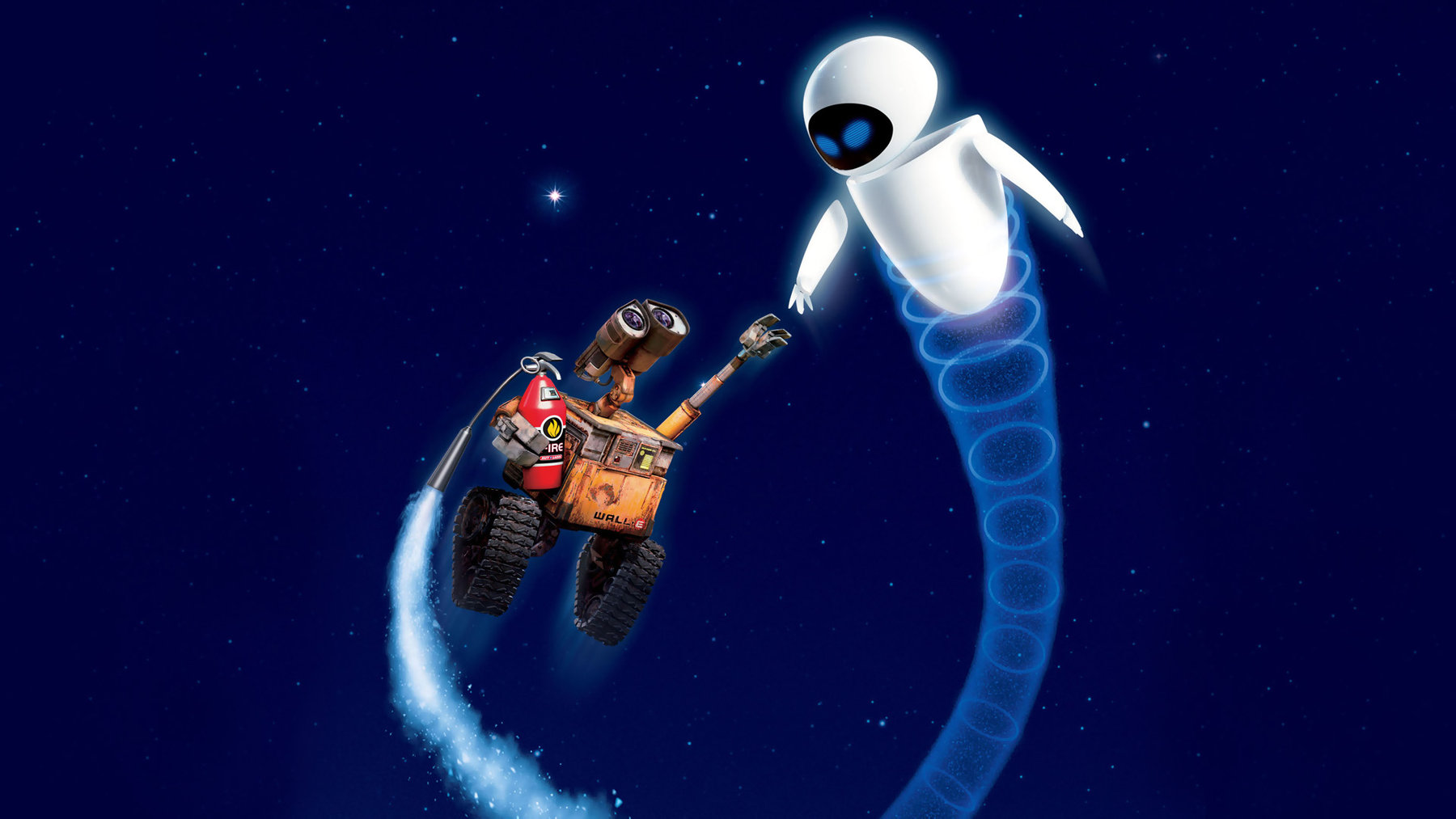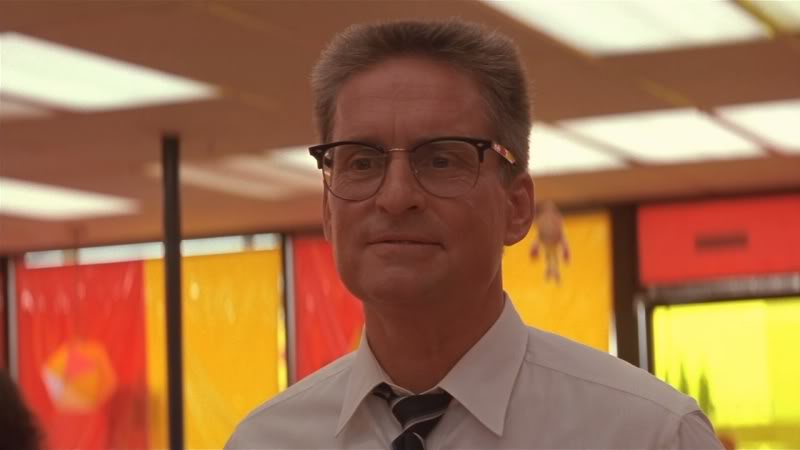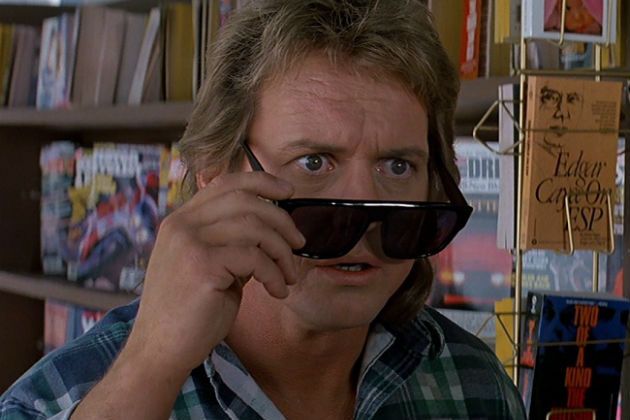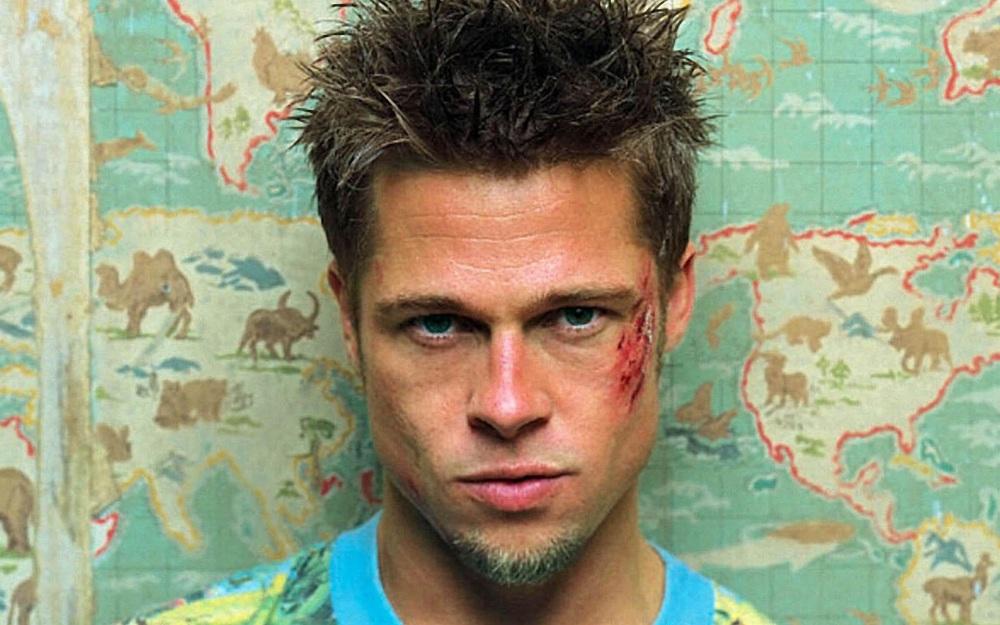5. Wall Street (1987)

The 1980s in the US was a decade of conspicuous consumption: the only success was excess, and the culture at large reflected this sort of rampant consumerism. Making money became a sort of new religion being followed by young urban professionals, colloquially referred to as Yuppies. Working in the financial sector and located in major metropolitan areas, these ambitious, ruthless workers were identified with high-paying jobs, fine-tailored suits, and luxury items purchased explicitly to be status symbols of their wealth and success.
Oliver Stone—always a keen observer of social trends—picked up on how these highly visible individuals and their lifestyle would one day be emblematic of the decade while also realizing the shallowness of centering one’s beliefs around consumption and making money, making 1987’s Wall Street at the height of the Yuppie movement.
Following the meteoric rise and quick fall of junior stockbroker Bud Fox (Charlie Sheen), an ambitious Yuppie seeking his fortune on Wall Street. Falling under the influence of legendary investor Gordon Gecko (Michael Douglas), a ruthless businessman who has all the trapping of success Bud aspires to, he uses his insider knowledge of the airline his father’s a union representative of to gain Gecko’s business.
After making some quick money, which gains him a penthouse apartment in Manhattan, a corner office, and a beautiful girlfriend, Bud has a crisis of conscience when his insider knowledge leads to an investigation by the Securities and Exchange commission and the dismantling of the company his father works for.
A cautionary tale about the danger of ambition and loss of morals in pursuit of the almighty dollar, the type of lifestyle both Bud and Gecko lead is one of shallow materialism encouraged by a consumerist culture. However, the film has had an ironic influence on young and hungry stockbrokers who admire Gecko’s ruthlessness and has become synonymous with the idea of naked capitalist ambition.
4. WALL-E (2008)

Maybe the most direct film on this list to address rampant consumerism, 2008’s WALL-E—a Pixar creation meant for children but obviously appeals to a wider audience—makes the environmental effects of unchecked consumerism its main thesis. WALL-E is a small robot—perhaps the last in existence—who was left behind on earth after all the humans left the planet in a futile attempt to somehow clean the over-polluted earth.
Environmentalists can rightly feel more than a little unnerved in its depiction of a world that’s become one large garbage dump, but WALL-E’s smartest satire is reserved for its commentary on how rampant consumerism can create a placated, lazy populace. Although the disastrous after-effects of the throwaway culture consumerism is what destroyed Earth’s environment to the point of no longer being habitable, the lifestyle of the remaining human beings—who orbit the planet in a gigantic luxury spaceship—suggests that nothing was learned.
Everyone is grossly overweight, hover around in floating chairs and sipping on gigantic containers of liquid food as robots encourage their slothful life. Dazed by their personalized holographic displays, surrounded by ads, and with their bodies atrophied due to extreme inactivity, the most horrifying depiction in WALL-E may not be Earth’s ruined environment but how the human population allowed itself to become consumed by consumerism.
3. Falling Down (1993)

Living in over-commercialized Western society can drive people a little…nuts. Especially in America, where it’s difficult to go anywhere or do anything without having to spend money or have some sort of financial transaction take place, people who are already on-edge can be pushed over due to this endless barrage of commercialism. 1993’s Falling Down shows just this, as an estranged father who’s been laid off snaps one day and begins a walk across Los Angeles as he takes out his frustrations on the modern world.
Foster is recently divorced. His wife has a restraining order against him, but he wants to attend his daughter’s birthday party that day. After being laid off and having the air conditioning stop working in his car, he abandons it in traffic and begins to trek across LA towards his daughter’s party. When a store owner refuses to give him change for the phone, he rants against the high prices of the store and smashes up the place.
When he tries to order breakfast at a fast food restaurant, only to be informed they have just switched to the lunch menu, he fires a gun and menaces the employees. When a payphone stops working, he shoots it to pieces. In short, Foster is acting out every fantasy frustrated consumers have experienced—but would never actually do.
Enjoyable for the cathartic scenes where Foster (played with intensity by Michael Douglas) is taking his rage out on the over-commercialized, consumerist nightmare everyone is confronted with on a daily basis, Falling Down is also the kind of movie that would never be made today, depicting a man that snaps and violently takes his revenge on the petty annoyances of day-to-day life.
2. They Live (1988)

Obey. Submit. Sleep. Consume. While on the surface the billboards, newspapers, and television programs in 1988’s They Live look like everyday items, if you wear a special pair of glasses their true intent is uncovered: they are hypnotic suggestions being disseminated to human beings by aliens that have infiltrated the human race and secretly control it. This is what a drifter (wrestler “Rowdy” Roddy Piper) discovers in John Caprenter’s satirical sci-fi classic that suggests how media is conditioning us to become mindless consumers.
After the drifter puts on a pair of sunglasses that uncovers the actual subliminal messaging in the media output, he begins a quest—being aided by a small group of resistance fighters–to destroy a radio tower that’s transmitting a frequency that hides the alien’s true grotesque forms.
While the film is notable for its incredibly long fight scene between Piper and Keith David, its iconic representation of subliminal messages being hidden in billboards and newspapers that order the human populace to be unquestioning consumers holds a potent message of the power of media and the unsettling ramifications of what consumerism means between the average person and the major corporate and governmental powers that encourage it.
1. Fight Club (1999)

While the 1990’s were a great decade for America, with economic prosperity at an all-time high, the culture was also drowning in consumerism. This inspired a sort of backlash among the youth of the country, particularly young men who felt displaced and disconnected from their instinctual nature as hunter-gatherers.
1999’s Fight Club addresses this issue head-on, although satirizing this elusive sense of ennui by portraying a group of American men attempting to reclaim their autonomy and masculinity by engaging in corporate sabotage and subterfuge. Specifically, taking on—and tackling—consumerism and totems of capitalism is a cornerstone aim of Project Mayhem, led by loose cannon Tyler Durden, who rallies his army of the disaffected by articulating this very condition, stating: “Advertising has us chasing cars and clothes, working jobs we hate so we can buy shit we don’t need. We’re the middle children of history, man. No purpose or place. We have no Great War. No Great Depression. Our Great War’s a spiritual war… our Great Depression is our lives. We’ve all been raised on television to believe that one day we’d all be millionaires, and movie gods, and rock stars. But we won’t. And we’re slowly learning that fact. And we’re very, very pissed off.”
Sardonic and grim, Fight Club became a popular cult film that many young men took at face value, ignoring the dangerous nihilism at its core and that Chuck Palahniuk, the author of the book the film is based on, was commenting on how extremism and cult of personality is just as dangerous as any other sort of ideology. Watched now in the 21st century, viewers can read the film as being either shockingly prescient of the rising tide of apathy consumerism inspires in Western societies or a naïve commentary produced in a culture that didn’t know how good they had it until it all came crashing down just a few years later.
Author Bio: Mike Gray is a writer whose work has appeared on numerous websites and maintains a TV and film site at MeLikeMovies.com.